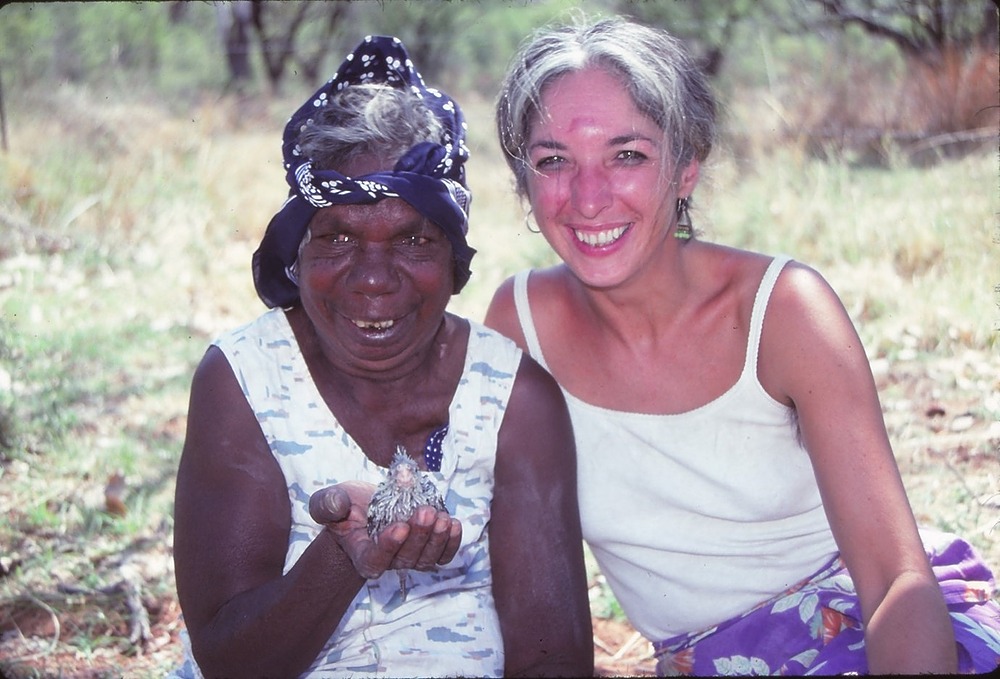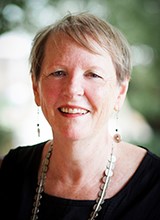Book Launch: Dreaming Ecology: Nomadics and Indigenous Ecological Knowledge, Victoria River, Northern Australia
Event description
Aboriginal and Torres Strait Islander readers are advised that this page contains images of deceased persons.
Please join us for the launch of Dreaming Ecology (ANU Press, 2024) by the late Deborah Bird Rose, renowned anthropologist and environmental humanities scholar on Indigenous Australian Environmental Knowledge and Practice in Victoria River District, Northern Australia, and losses and extinctions caused by colonialism and pastoralism. The book has been co-edited by Darrell Lewis and CHL's Emerita Professor Margaret Jolly.
Dreaming Ecology will be formally launched by Professor Katherine Gibson, who is internationally known for her research on rethinking economies as sites of ethical action.
In the words of the author herself (Deborah Bird Rose), who passed away in 2018, Dreaming Ecology ‘explores a holistic understanding of the interconnections of people, country, kinship, creation and the living world within a context of mobility. Implicitly it asks how people lived so sustainably for so long’. It offers a telling critique of the loss of Indigenous life, human and non-human, in the wake of white settler colonialism and this becoming ‘cattle country’. It offers a fresh perspective on nomadics grounded in ‘footwalk epistemology’ and ‘an ethics of return sustained across different species, events, practices and scales.’ This is the third volume in a trilogy grounded in Debbie’s long-term research with Indigenous people in the Victoria River District (VRD) of Northern Australia. Her earlier books Hidden Histories (1991) and Dingo makes us human (1992) have both been widely acclaimed, respectively winning the Jessie Litchfield and Stanner prizes.

Jessie Wirrpa and Deborah Bird Rose out bush on Victoria River Downs 1982, Photo by Darrell Lewis
About the Speaker

Professor Katherine Gibson is internationally known for her research on rethinking economies as sites of ethical action. She trained as a human geographer with expertise in political economy and, with her collaborator for over 30 years, the late Professor Julie Graham, developed a distinctive approach to economic geography drawing on feminism, post-structuralism and action research. The diverse economies research program they initiated has become a vibrant sub-field of study within the social sciences. In the late 1990s the collective authorial voice of J.K. Gibson-Graham led the critique of capitalocentric thinking that was blocking the emergence of economic possibility. The end of capitalism (as we knew it): a feminist critique of political economy published in 1996, was republished in 2006 with a new Introduction and named a Classic in Human Geography by the leading journal Progress in Human Geography in 2011. Gibson-Graham's work on a post-capitalist economic politics has had a widespread readership among those interested in economic alternatives and has been translated into Chinese, South Korean, Turkish, Spanish and French.
Prior to joining Western Sydney University in 2009 Professor Gibson held positions as Professor and Head of the Department of Human Geography in the Research School of Pacific and Asian Studies at the Australian National University (1999-2008) and Director of Women's Studies at Monash University (1992-1995). She has directed action research projects with communities interested in alternative economic development pathways in Australia, Papua New Guinea, the Solomon Islands and the Philippines. These experiences have contributed to elaboration of a distinctive 'Community Partnering Approach to Local Development' (opens in new window). In 2008 she made a 50 minute film on social enterprise development as a local development strategy in the Philippines. Her most recent book, co-edited with Gerda Roelvink and Kevin St. Martin, is entitled Making other worlds possible: performing diverse economies (University of Minnesota Press, 2015). In 2013 she published Take back the economy: an ethical guide for transforming communities, co-authored with Jenny Cameron and Stephen Healy (University of Minnesota Press).
This event is a collaboration between the ANU School of Culture, History & Language and ANU Press.
Hard copies of the book will be available for purchase at a discounted price.
Registration is essential; please register latest by 13 May for purposes of finalising our catering arrangements.
Note: If you require accessibility accommodations or a visitor Personal Emergency Evacuation Plan please contact the event organiser(s).
Tickets for good, not greed Humanitix dedicates 100% of profits from booking fees to charity

